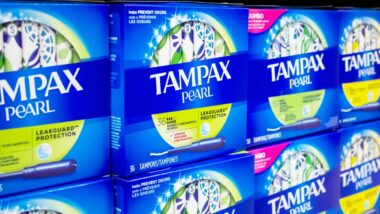
Update:
- The NFL’s Tampa Bay Buccaneers asked a federal judge in Florida to decertify a class in a $19.75 million settlement over spam faxes.
- The Buccaneers say it is impossible to find out which fax number holders received the faxes via email that were therefore not in violation of the Telephone Consumer Protection Act, according to a memo filed in the United States District Court for the Middle District of Florida, Tampa Division.
- The decertification request also says there is no identifying information for the holders of 38% of the telephone numbers on the potential class list and there isn’t a way to contact those individuals or confirm whether they used an online service for faxes in 2009 and 2010.
- Another 31% of the matches on one or both reverse lookups show conflicts on multiple possibilities of who owned the numbers between July 2009 and June 2010.
(April 7, 2016)
Two businesses have filed a proposed class action lawsuit against the Tampa Bay Buccaneers, alleging that the group sent over 300,000 unsolicited faxes in violation of the Telephone Consumer Protection Act, or TCPA.
The Buccaneers TCPA lawsuit was filed in June 2013 by Cin-Q, and Medical & Chiropractic joined in January 2014 with a second complaint.
Cin-Q Automobiles Inc. and Medical & Chiropractic Clinic Inc. claim that they received a number of unwanted faxes advertising discounted tickets to Buccaneers games from July 2009 to June 2010. The companies allege that the faxes neglected to include an appropriate option for opting out of the messages, which is in violation of TCPA rules.
The businesses hope to have three separate classes certified in the proposed TCPA class action lawsuit, covering three individual Tampa Bay Buccaneers fax transmissions. According to experts working on the TCPA lawsuit, these transmissions totaled 343,122, and were sent to 131,011 numbers.
The two businesses say that during the upcoming trial the only issues at stake are whether:
- The messages were sent on behalf of the team
- The messages were advertisements
- There were appropriate opt-out notices
Though there are over a hundred thousand numbers involved in the TCPA lawsuit, the answers to these questions would be the same for each class member, the businesses argue.
The proposed TCPA class action lawsuit seeks to cover people that were sent faxes offering Buccaneers tickets between July 14 and 16, 2009; from Aug. 17 to 20, 2009; and from May 24, 2010, to June 9, 2010.
The faxes that class members received also must contain one of the three insubstantial opt-out notices that the businesses claim violate the TCPA.
While the team claims it cannot be held accountable for the faxes, the businesses allege that since the messages were sent on behalf of the team, it could be counted as the sender.
The team has asked whether the businesses would be willing to reach a settlement rather than seeing the lawsuit through, but the businesses declined.
TCPA regulations
The Telephone Consumer Protection Act was originally instituted in 1991, but has morphed over the years to include more modern technology. Regardless of the changes, the TCPA was designed to protect consumers from unwanted solicitation by outside parties such as retail and other businesses.
Unwanted solicitation includes robocalls or the use of an auto dialer machine or pre-recorded message to reach consumers. This also includes text and fax spam.
Despite the fact that the TCPA has been around for a long time, many companies still choose to send these kinds of calls and texts.
However, if a consumer has provided prior express consent, they have essentially given their permission to receive these types of call or messages, even if they are the National Do Not Call Registry. Still, at any time, a consumer can choose to revoke their consent or opt-out of receiving these types of messages or calls.
Consumers who have received robocalls or text spam from a company that they believe to be TCPA violations may find that keeping accurate, written documentation of their experiences can be beneficial in determining their eligibility to join a TCPA class action lawsuit.
What do you think of the Tampa Bay Buccaneers fax messages lawsuit and settlement? Let us know in the comments below.
The Tampa Bay Buccaneers fax messages class action lawsuit is Cin-Q Automobiles Inc. et al. v. Buccaneers Ltd. Partnership et al., Case No. 8:13-cv-01592, in U.S. District Court for the Middle District of Florida.
Don’t Miss Out!
Check out our list of Class Action Lawsuits and Class Action Settlements you may qualify to join!
Read About More Class Action Lawsuits & Class Action Settlements:
- Walgreens class action claims retailer made robocalls without consent
- O’Reilly class action alleges auto store engages in unsolicited text messaging
- Papa John’s class action alleges company sends unsolicited text messages
- UnitedHealthcare class action claims company makes prerecorded calls without consent















2 thoughts onTampa Bay Buccaneers seek to decertify class in $19.75M spam fax settlement
please add me
Add me please